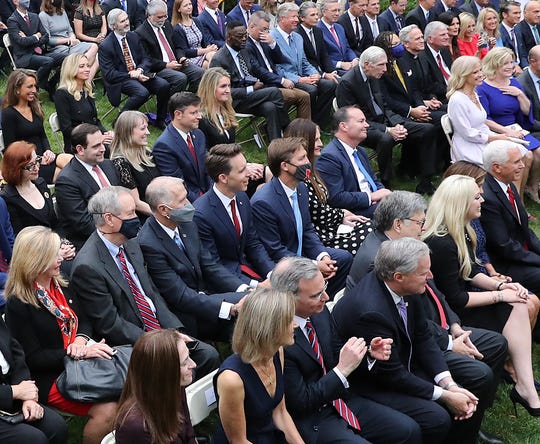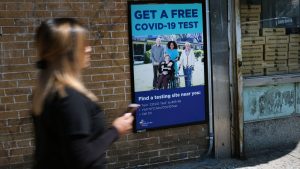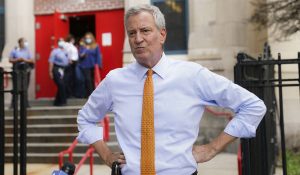President Trump’s doctor said Trump is not currently on oxygen, but would not say whether he ever received oxygen since his COVID-19 diagnosis. USA TODAY
Patricia Beckford Acheson can empathize with the Secret Service detail protecting President Donald Trump.
Acheson was among the first women assigned to the agency’s permanent protection detail, spending more than three years protecting then-vice president George Bush Sr. in the early 1980s.
“Our biggest fear was the lone assassin, but things have changed so much,” the retired agent told USA TODAY. “Now they are dealing with organized terrorism and with COVID. The threats against a president nowadays are mind-boggling.”
Agents make safety recommendations that generally are accepted. If not, such as in the case of presidents exiting limousines to greet crowds, some kind of mutual accommodations usually are made. But the bottom line is that the president makes the call.
“Ultimately, our job is not to say ‘no,’ it is to protect,” Acheson said.
‘Ups and downs’: Doctors say Trump is improving while still hospitalized
Former Secret Service directors W. Ralph Basham and Lew Merletti say the White House medical office is responsible for providing advice and recommendations on the potential threat posed by disease and other health issues, which are then factored into the overall security plan. But Basham said the security and health challenge posed by the coronavirus is unprecedented.
“We are in uncharted waters,” said Basham, who served as director from 2003 to 2006. “We haven’t seen anything like this before.”
And forget those made-for-TV moments where agents hustle a balking president into a bunker. They may push the president out of immediate harm’s way, but longer-term decisions are subject to presidential approval. How well they are received often depends on the relationship between the president and his protective detail, former Secret Service director John Magaw says.
“You have to be careful because you don’t want to cry wolf, but you also want to be clear about any concerns you may have,” Magaw said.
Trump invited dozens of politicians and high-profile dignitaries to the White House Rose Garden on Sept. 26 to introduce Amy Coney Barrett as his pick to succeed the late Justice Ruth Bader Ginsburg on the nation’s high court. Many at the gathering did not wear masks, and social distancing was not apparent. Audience members sat in chairs packed next to each other, and some of those gathered exchanged hugs. Now, the president and at least seven others have tested positive for COVID-19.
The Secret Service declined to comment.
“I feel so badly because agents have a job and they are sworn to do it and they will do it,” Acheson said. “But how do you protect someone from COVID?”
Not just Trump: US records the most daily infections in nearly 2 months
Trump took a three-month hiatus from large public rallies starting in March. That ended with a rally in Tulsa on June 20. But the event drew a far-from-capacity crowd to the 19,000-seat BOK Center, and The New York Times, citing unnamed sources, said two Secret Service agents tested positive in Tulsa. Other campaign events featuring little or no social distancing have followed.
“If he wants to do something, then we will do everything in our power to make sure that it can be done safely and securely,” Magaw said. “The bottom line, it’s his call.”
Ogbonnaya Omenka, an assistant professor who specializes in public health at Butler University’s college of Pharmacy and Health Sciences, told USA TODAY that in an “ideal world” such gatherings would not take place in the current virus climate.
“For any public gathering, maintaining the public health guidelines should be a top priority,” he said. “However, no matter how sound the public health recommendations are, the key consideration lies in whether organizers … adhere to them or not.”
Biden surges to 14-point lead after caustic first debate, poll finds
While largely a responsibility for medical authorities, Basham said the virus could raise sensitive security questions for the Secret Service. Basham said that if the agency suspected, for example, that the president was ill with COVID-19 during a debate or other joint appearance with his Democratic rival, he said the service would likely have the obligation to take their concerns to the White House medical office so that Joe Biden – another service protectee – could be alerted to the potential risk.
“These are very difficult situations to be in,” Basham said.
The Secret Service was originally founded to combat widespread counterfeiting of U.S. currency after the Civil War. In 1901, the agency was asked to begin its protective mission after the assassination of President William McKinley.
Less than two decades later, the “Spanish flu” emerged in 1918. Much like Trump, then-president Woodrow Wilson downplayed it. And like Trump, Wilson became infected, contracting the illness shortly after arriving in Paris in April 1919. Sarah Fling, a fellow writing for the White House Historical Association, notes that a number of members of the Wilson entourage became ill during a transatlantic voyage in February 1919 – including several members of the Secret Service.
The Secret Service doesn’t protect presidents alone, calling upon other federal, state and local agencies to assist on a daily basis. When the president travels, an advance team of Secret Service agents works with the host city, state and local law enforcement, as well as public safety officials to put the the necessary security measures in place.
When Bush Sr. would plunge into a friendly crowd, Magaw said he often had a hand on the president’s belt, so that he could physically move him in the event of an emergency. He said Bush knew of the need for the hands-on protection and accommodated the service by wearing uniformly tailored suits with a single belt loop on the back of his pants so that Magaw had a relatively clear spot to grasp without becoming entangled.
There was also the time when the agency was moved to act when Bush’s penchant for speed boating on the waters near his family retreat in Maine raised concerns. Magaw said he talked to Bush about installing a safety bar near the captain’s chair, where the president and secret service agent would attach themselves to guard against an unexpected fall overboard.
“The relationship and rapport is very important,” Magaw said. “That’s why you spend time with them and talk through exactly how you are going to proceed.”
Read or Share this story: https://www.usatoday.com/story/news/nation/2020/10/04/trump-covid-19-can-secret-service-stop-presidents-risky-behavior/3616022001/



















